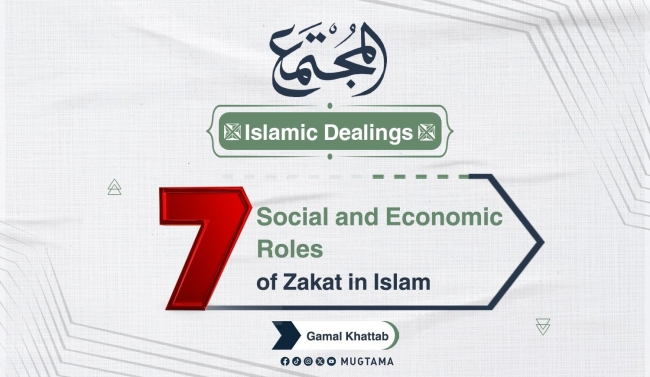7 Social and Economic Roles of Zakat in Islam Featured
Zakat, one of the Five Pillars of Islam, is not merely a charitable contribution but a mandatory act of worship. Zakat plays a vital role in Islamic economics, serving as a tool for social welfare and economic justice. We’ll quickly explore, here, the multifaceted roles of zakat, highlighting its impact on both individual and societal levels.
The Main Roles of Zakat
- Purification of Wealth Zakat serves as a means to purify one’s wealth. By giving away a portion of the surplus to those in need, Muslims cleanse their possessions from greed and selfishness, fostering a spirit of generosity (1).
Allah Almighty says, " (9:103) O Prophet, accept propitiatory offerings from their possessions to cleanse and purify them thereby, and help them onward (in the way of virtue); and pray for blessings for them because your prayer will bring comfort to them; and Allah hears everything and knows everything.”
- Redistribution of Wealth It acts as an instrument for the redistribution of wealth within the Muslim community. This ensures that a part of the wealth of the affluent is shared with the less fortunate, thereby reducing economic disparities (2). “So that it may not circulate between the wealthy among you.” “Quran (59:7)
- Poverty Alleviation As a fundamental aspect of Islamic social welfare, zakat is a powerful tool for poverty alleviation. It provides the poor with direct financial aid, which can be used for basic necessities such as food, shelter, and clothing (3).
- Social Cohesion Zakat strengthens social cohesion by bridging the gap between different socioeconomic classes. It fosters a sense of brotherhood and solidarity among Muslims, as the rich are directly involved in the welfare of the poor (3).
- Economic Circulation The distribution of zakat funds stimulates economic activity by increasing the purchasing power of the recipients. This, in turn, can lead to a higher demand for goods and services, benefiting the economy at large (2).
- Preventing Social Ills By providing financial support to the needy, zakat helps prevent social ills such as crime and begging. It offers a legitimate means for the poor to improve their living conditions without resorting to unlawful activities (3).
- Encouraging Investment Zakat funds can be used to finance small businesses or provide vocational training, encouraging investment and job creation. This not only helps individuals but also contributes to the overall economic growth (2).
Zakat is a multifunctional pillar of Islam that addresses both spiritual and worldly needs. Its roles extend beyond individual acts of charity, encompassing broader social and economic dimensions. By fulfilling their zakat obligations, Muslims contribute to a more equitable and prosperous society, in line with the divine principles of Islamic economics.
------------
Sources
- Zakat in Islamic Economics: A Catalyst for Economic Justice and Social Welfare - The Muslim Vibe
- Microsoft Word - The Institution of Zakat and Its Economic Impact on Society.docx (hbku.edu.qa)
- The Impact Of Zakat On Muslims’ Social Life | Bonyan Organization
- What Is the Role of Zakat In Islam? | Zakat Foundation of America


